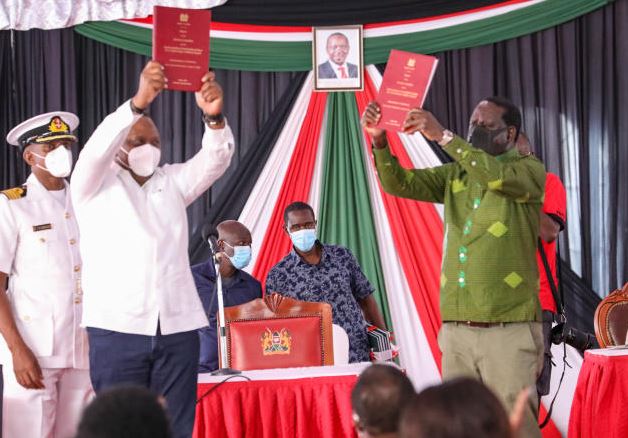×
The Standard e-Paper
Join Thousands Daily

Former Prime Minister Raila Odinga with President Uhuru Kenyatta the receive the BBI report at Kisii State Lodge. [Standard]
The Building Bridges Initiative (BBI) report has recommended constitutional amendments that create the positions of Prime Minister, his two deputies and the Leader of the Official Opposition in order to deal with the predictable post-election instability.